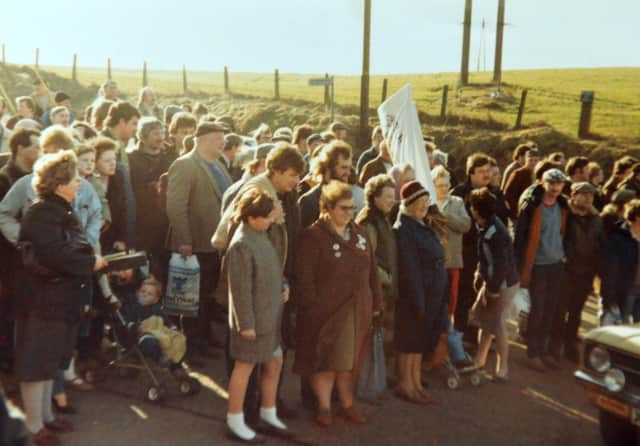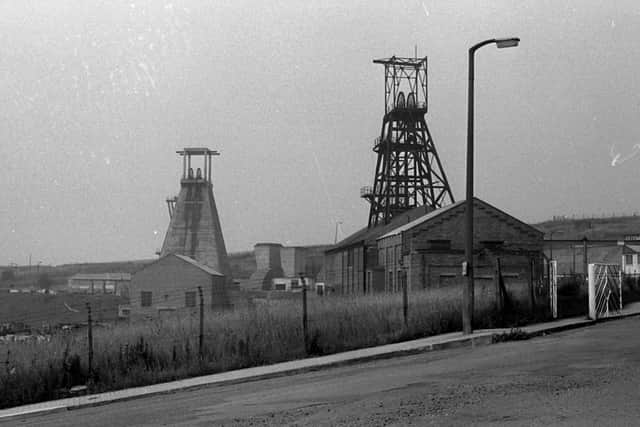Miners' Strike in Sunderland: Debt, worry and days on the picket line among a family man's memories of 1984
and live on Freeview channel 276
Pit mechanic and father of three Bob Heron had a job he loved at the start of 1984.
But by March that year, his family's future was filled with uncertainty.
Advertisement
Hide AdAdvertisement
Hide AdHe was on strike and battling to save his local pit at Eppleton alongside 1,000 colleagues.


Bob spent 1984 on the picket lines while his wife Juliana was 'at home with the kids who were 4, 11 and 15'.
Searching the pit heap
He remembered days where he would picket for hours and then head to the pit heap to 'riddle' the waste for any coal he could get out of it for the family fire.
"I would bring that back home and that would be the fire until it just about run out. Then I would be back up on the heap again."
Advertisement
Hide AdAdvertisement
Hide AdPicketing duties took him to Staffordshire, Leicestershire, Manchester, west of Durham and opencast sites in Northumberland - often for eight hours or more.
'It wasn't a lovely time. It was quite horrendous at times," he told the Echo.
It was emotional on the picket lines
He would spend his days at the gates of collieries trying to persuade wagon drivers not to go in. The results were mixed and the experience was 'often emotional'.
Bob and Juliana wisely took action to make sure they sorted out their financial arrangements ahead of the strike.
Advertisement
Hide AdAdvertisement
Hide Ad'Quite often, there would be a bailiff knocking on the door'
But back on Wearside, hundreds of other mining families faced problems.
"There was all the debt that you had as well because people had bought cars, televisions, videos. It was all on HP.
"Quite often, they would be landed with a bailiff or someone knocking at the door wanting money."
Miners tried to find local work to tide them over while their loved ones worried over how they would survive.
Advertisement
Hide AdAdvertisement
Hide AdNo jobs led to an exodus of local people
When the strike was over, his local village went downhill, said Bob.


"There was no work so a lot of the young people moved out."
Many colliery houses were left empty. Bob and Juliana moved into one of them - at a rent of 7s 6d a week - because 'we couldn't afford the council rent because of the debt we had built up during the strike', he said.


Within years, the domino effect of pit closures became reality.
"They closed our colliery, moved the workforce to Murton. They closed Murton and moved that workforce to Vane Tempest. That was going on all the time but there was nothing coming in to replace all those jobs."
Advertisement
Hide AdAdvertisement
Hide Ad

To add to the blow in Hetton, a local builders firm closed with 500 jobs lost at the same time as the pit shut. 1,500 people were on the dole.
"What's the cost of that," asked Bob. "And the social cost is even bigger".
Comment Guidelines
National World encourages reader discussion on our stories. User feedback, insights and back-and-forth exchanges add a rich layer of context to reporting. Please review our Community Guidelines before commenting.